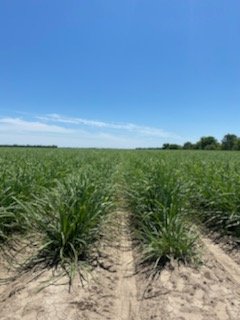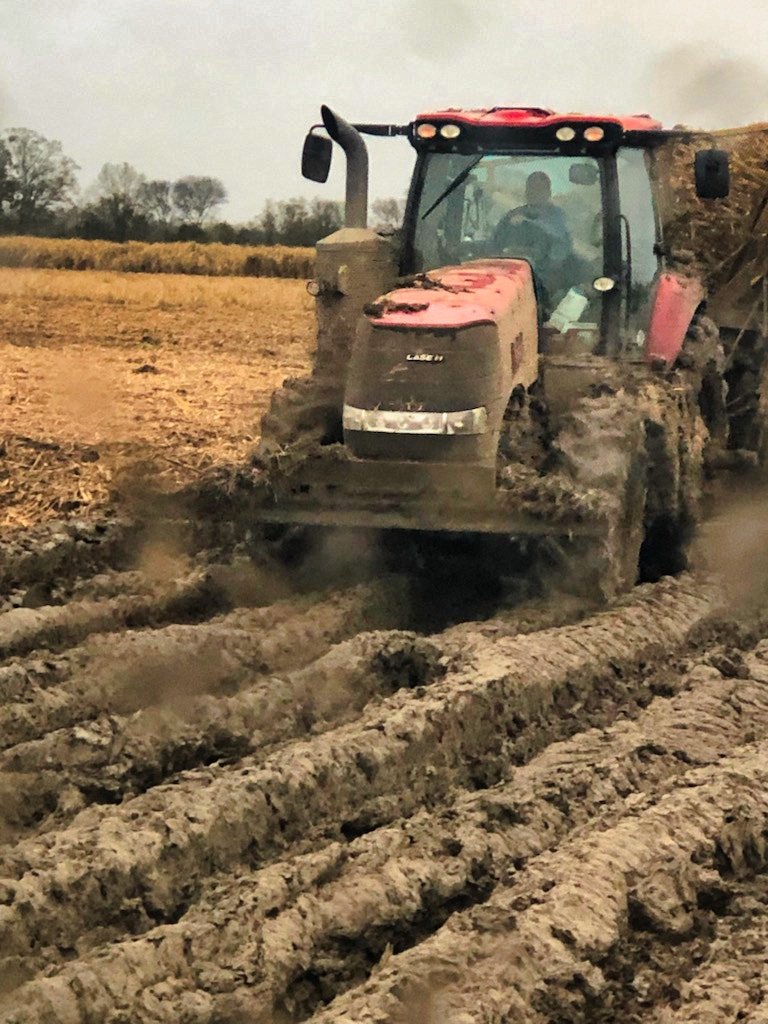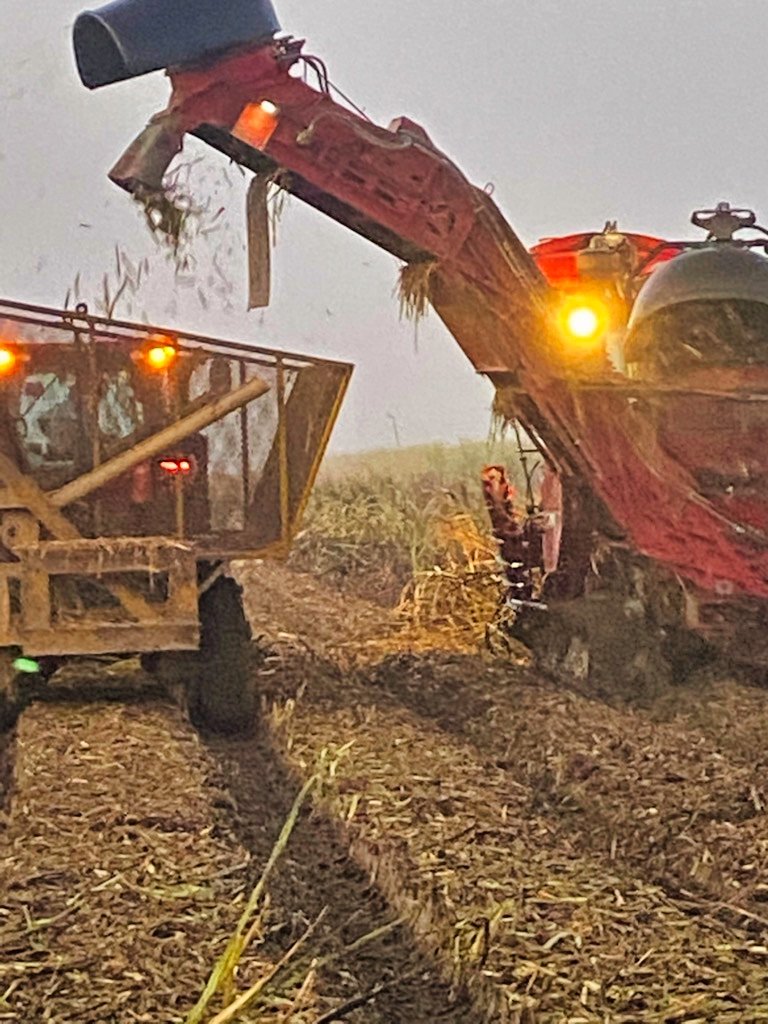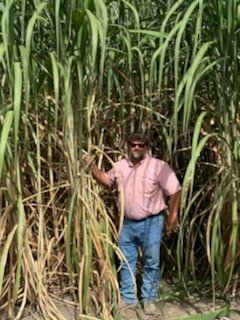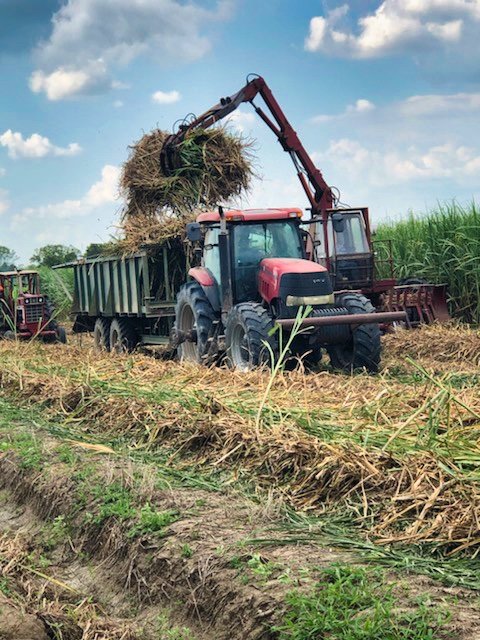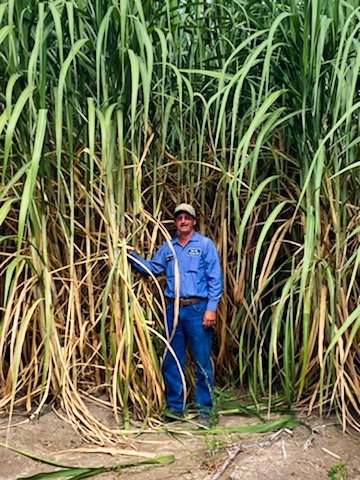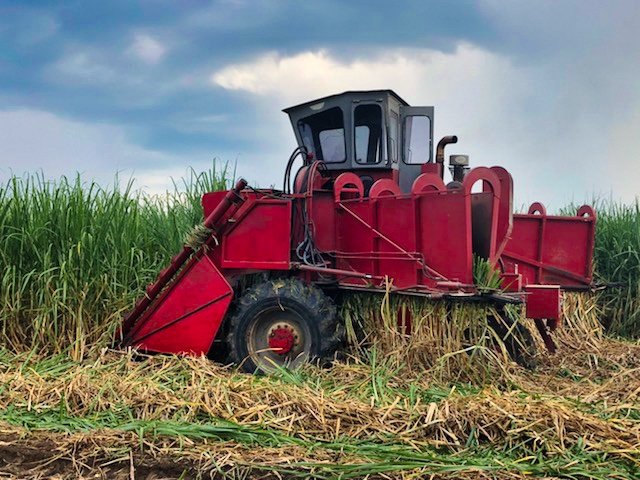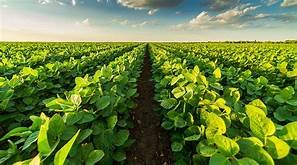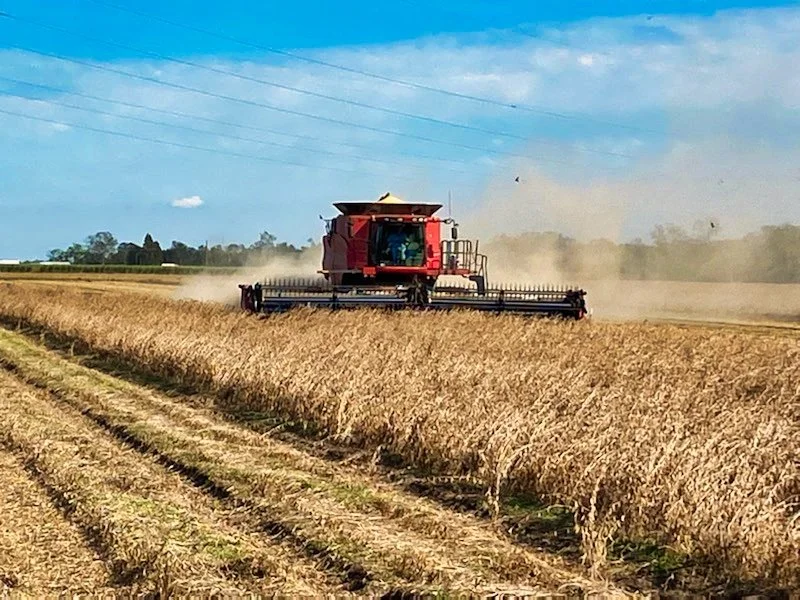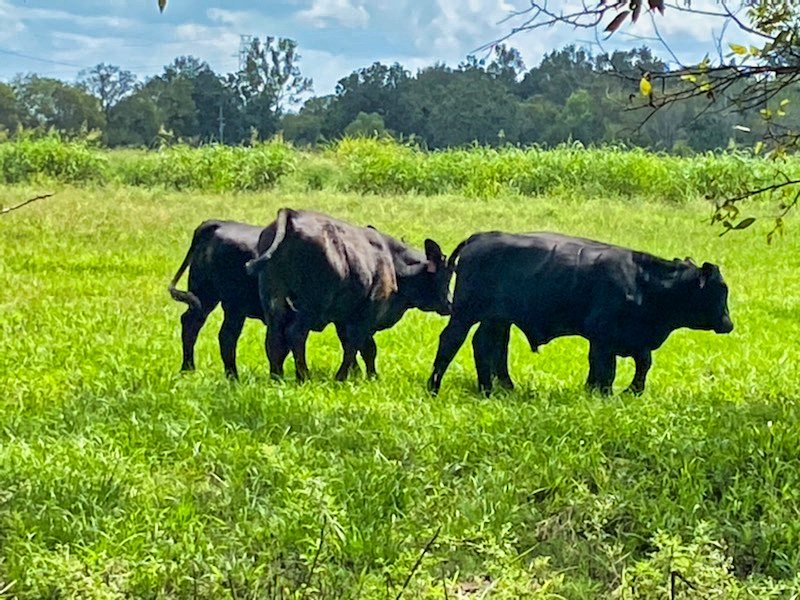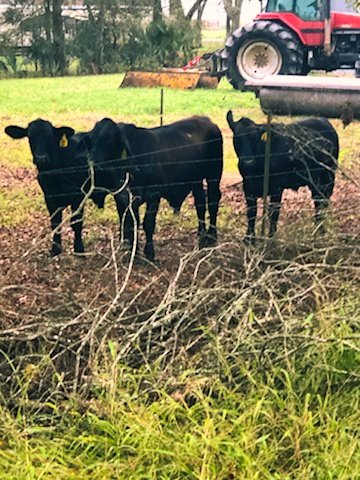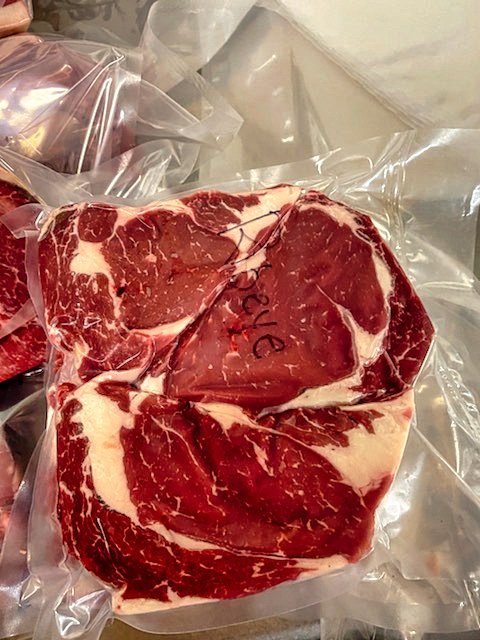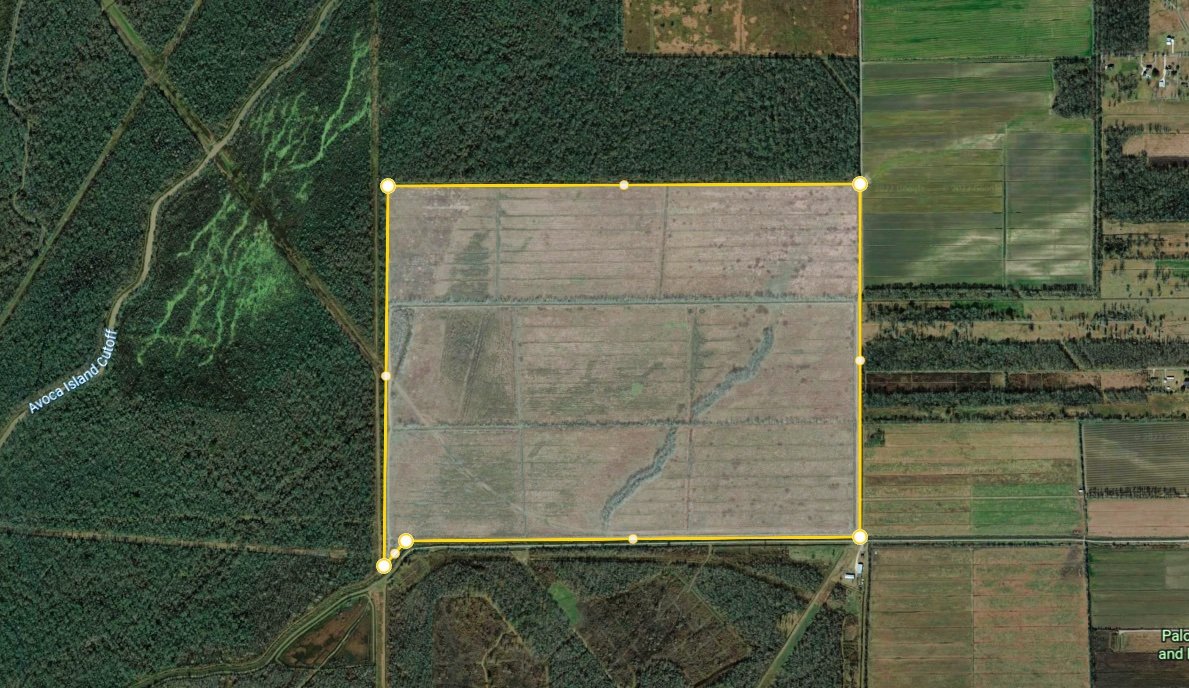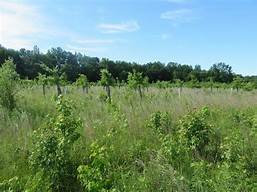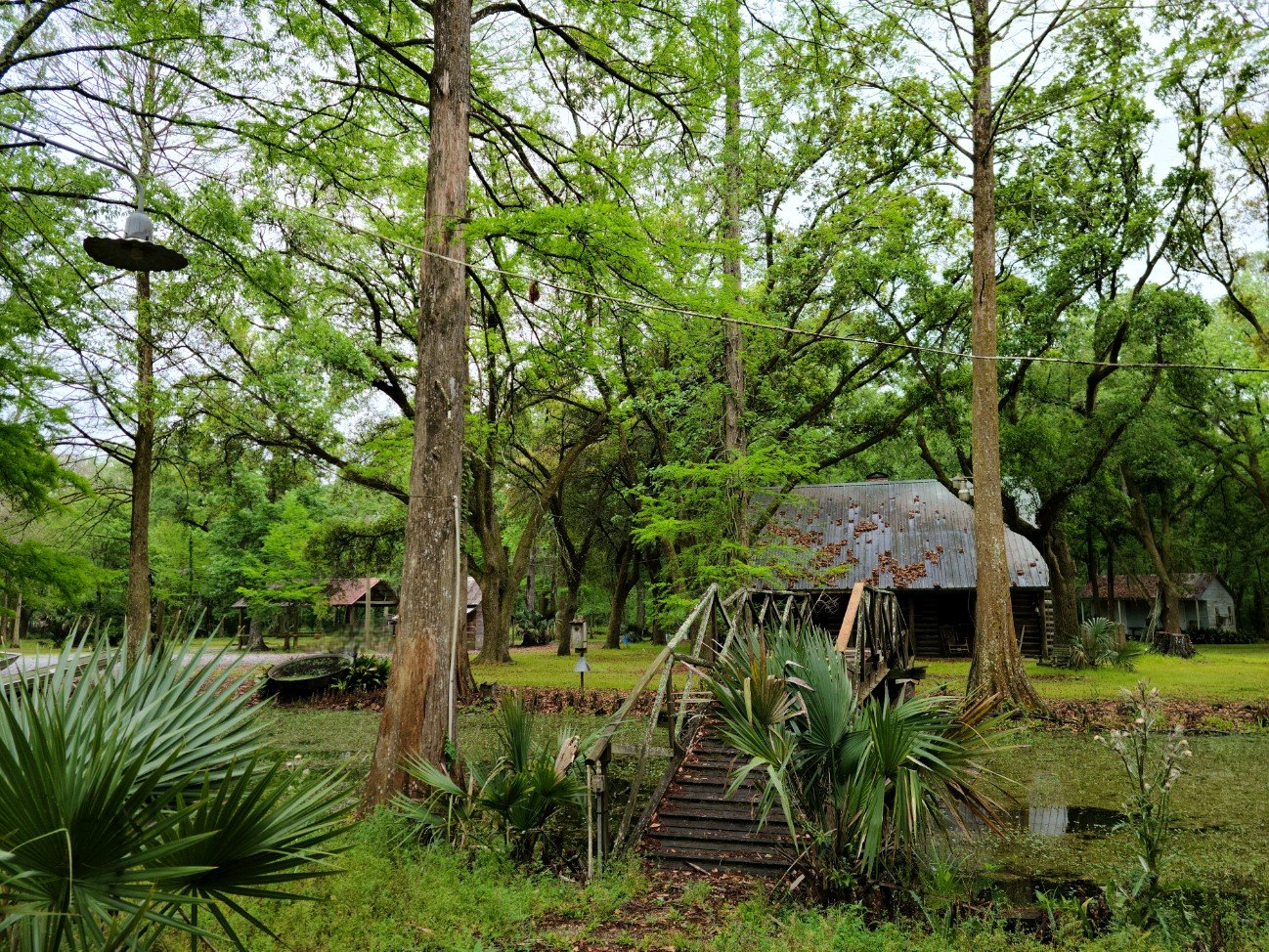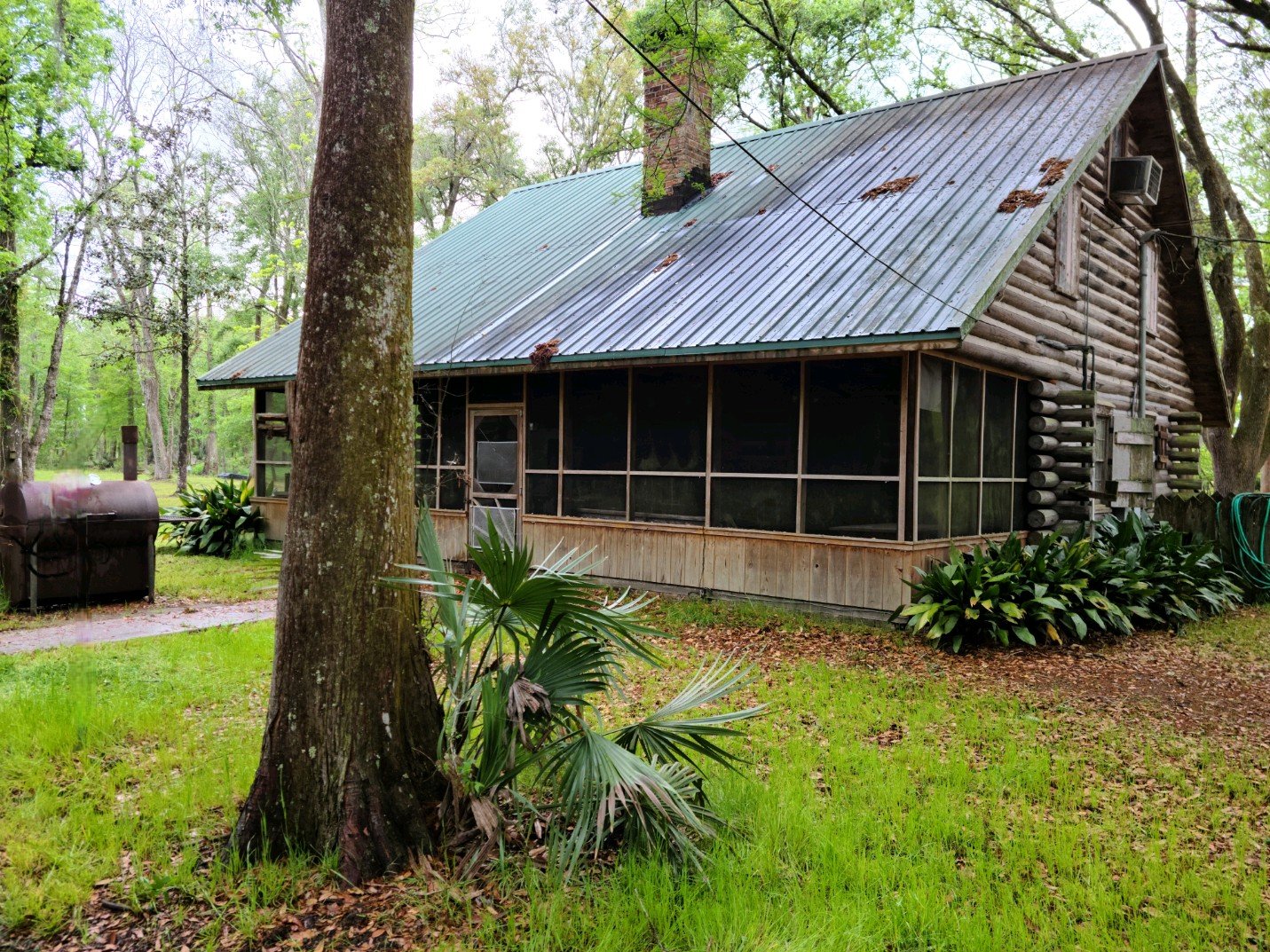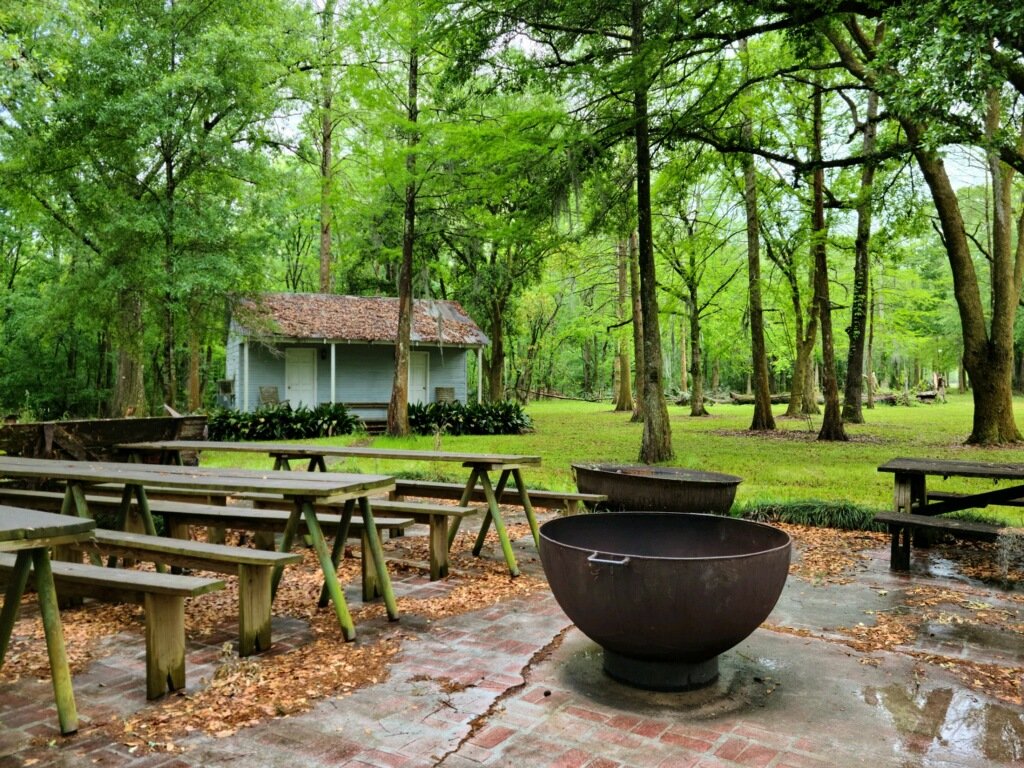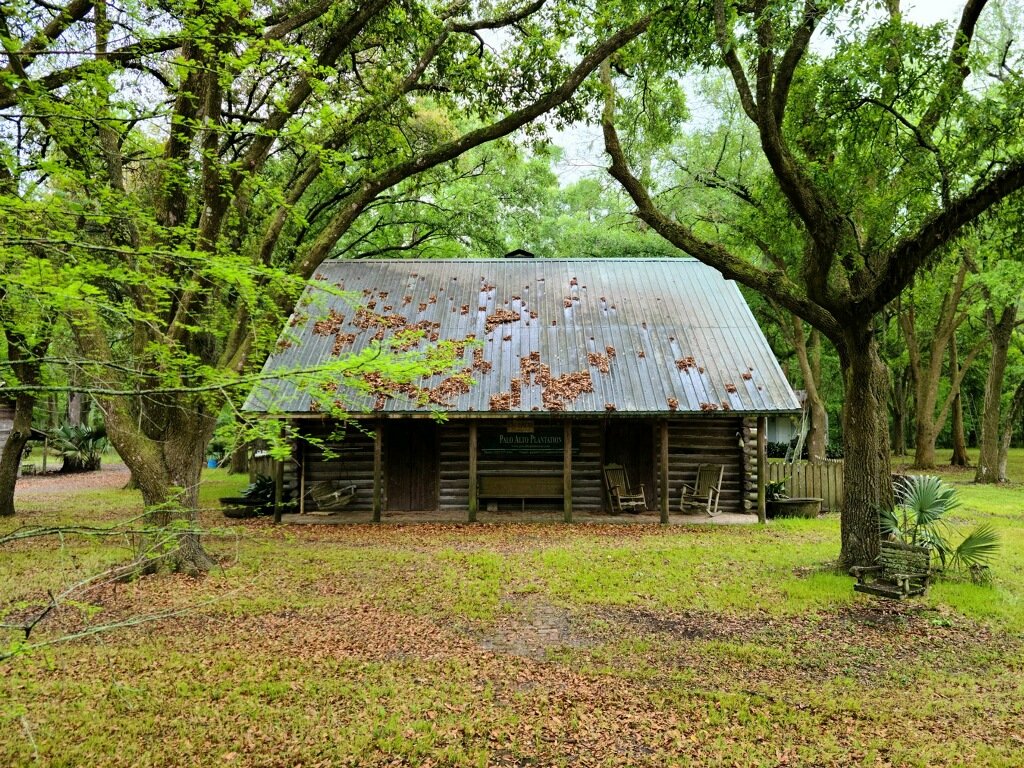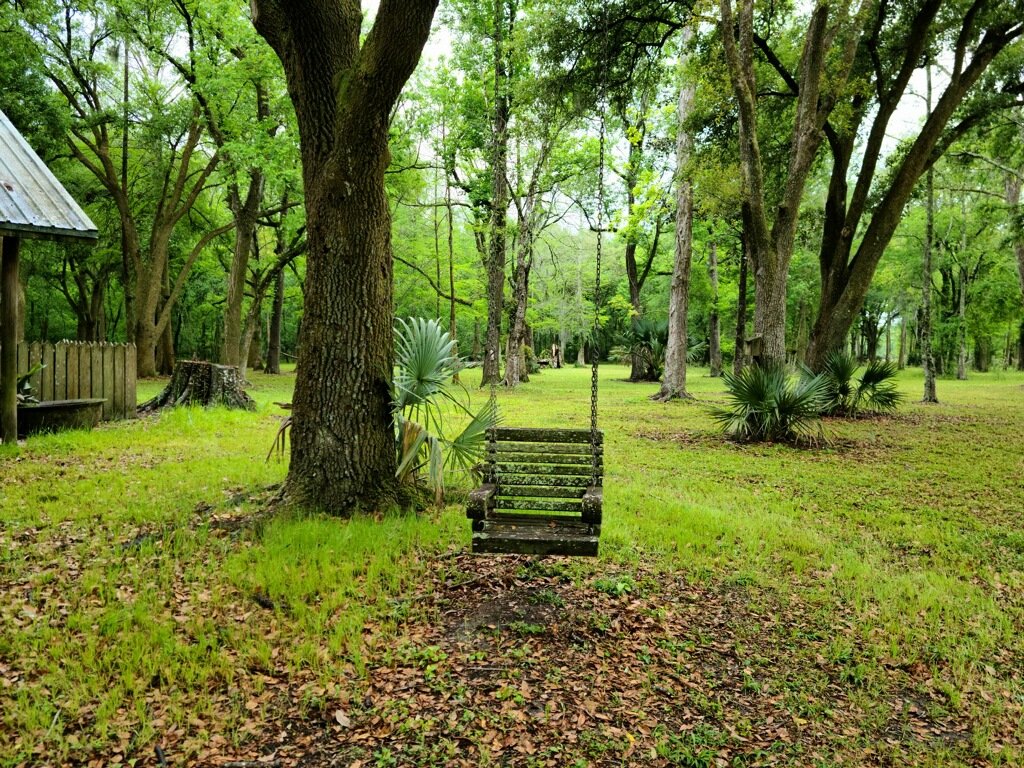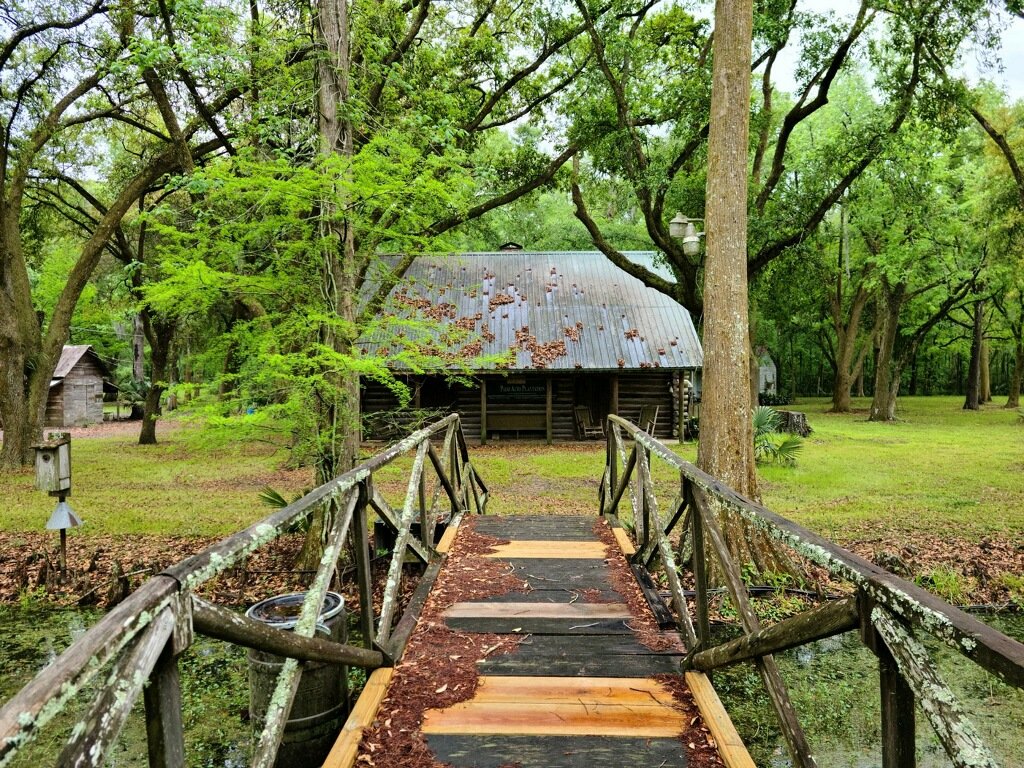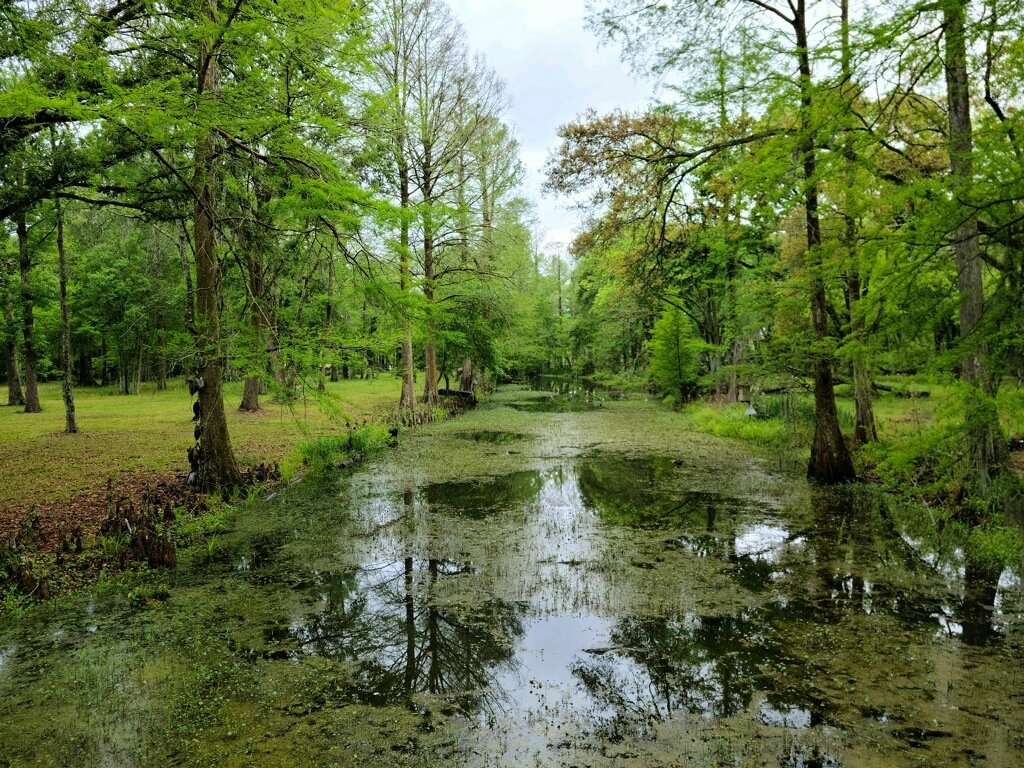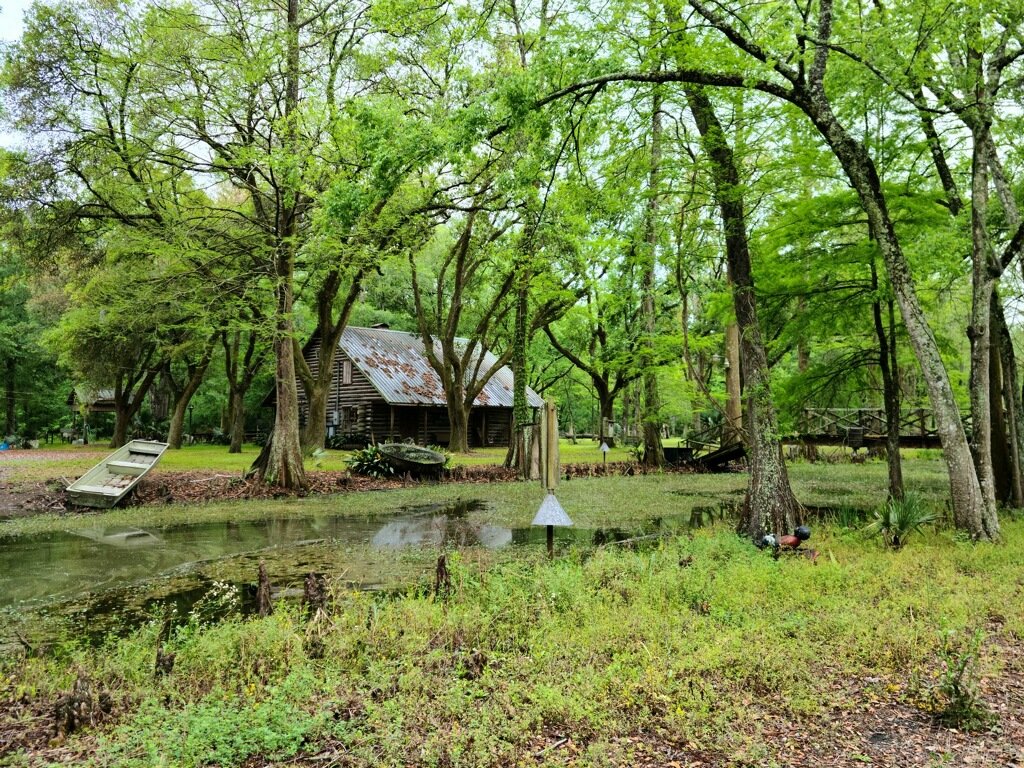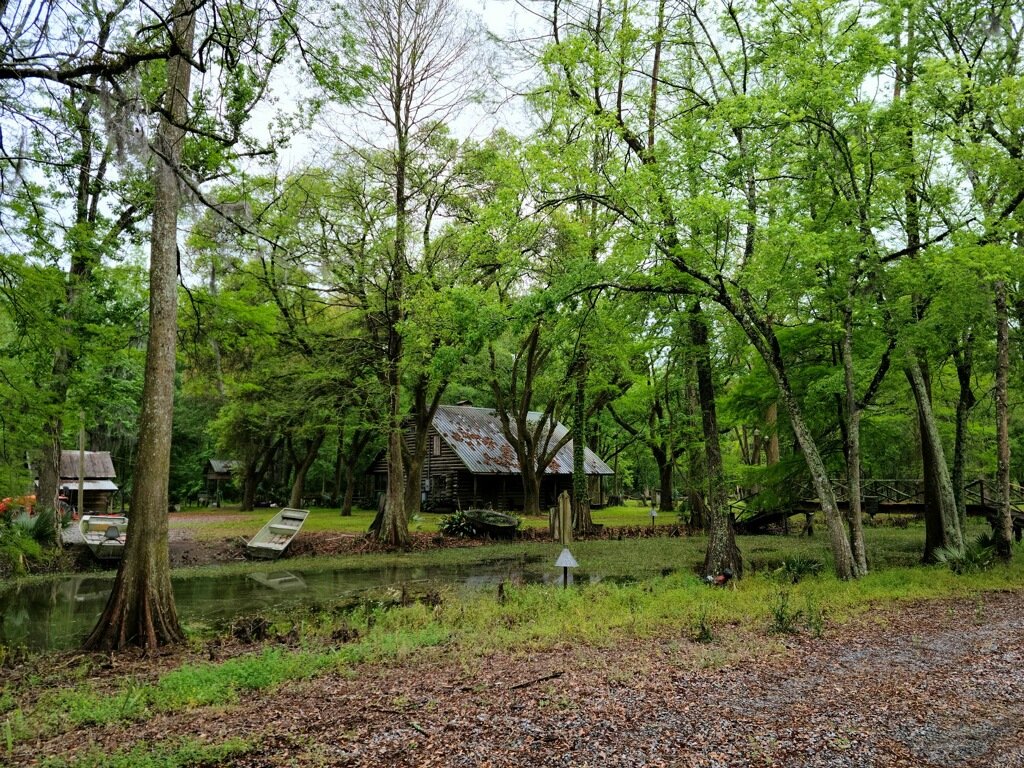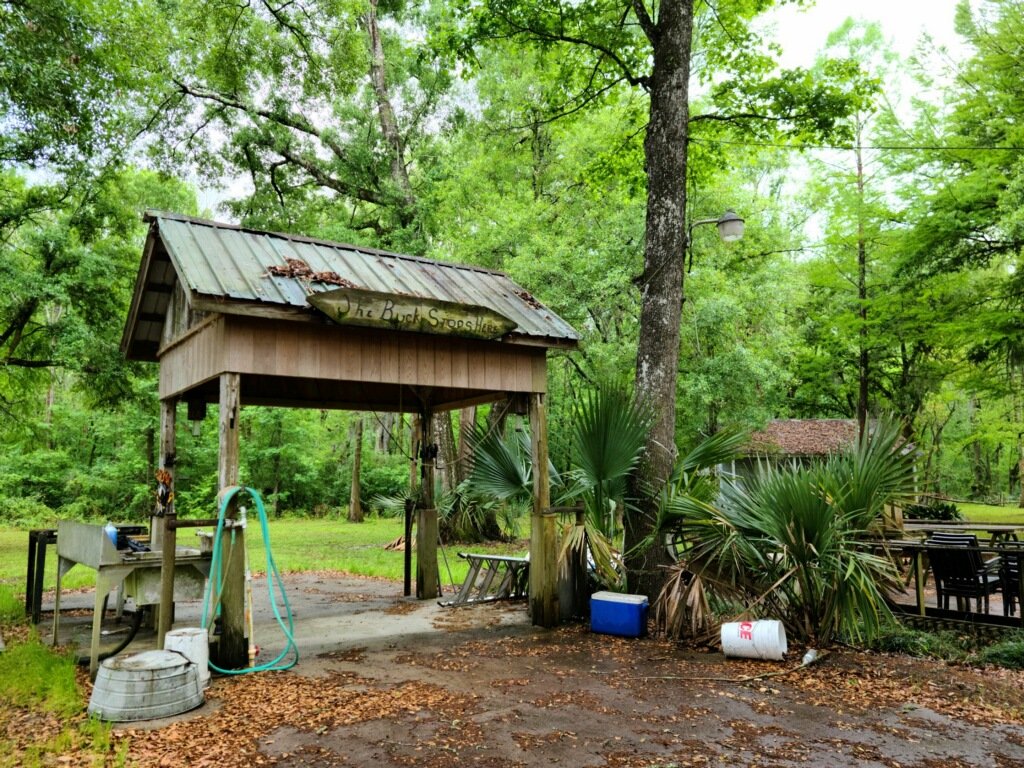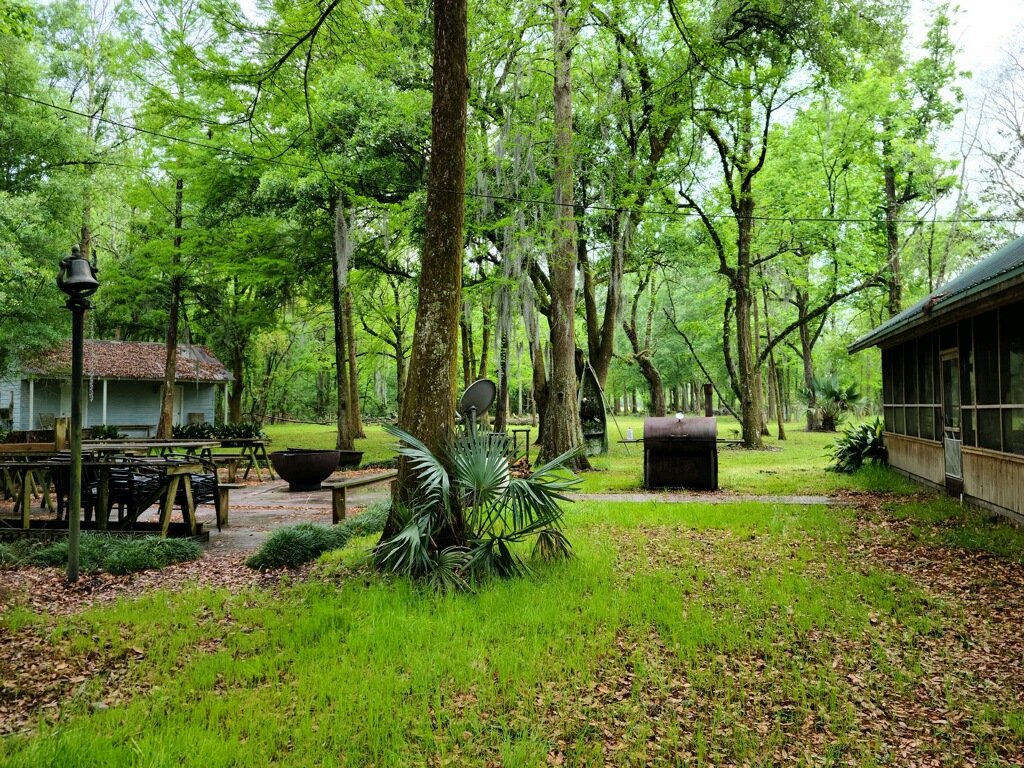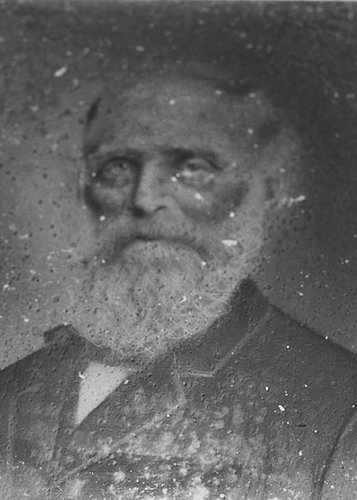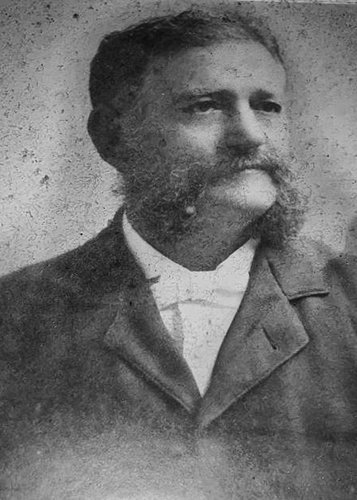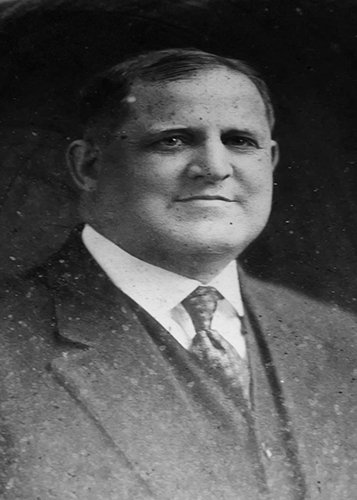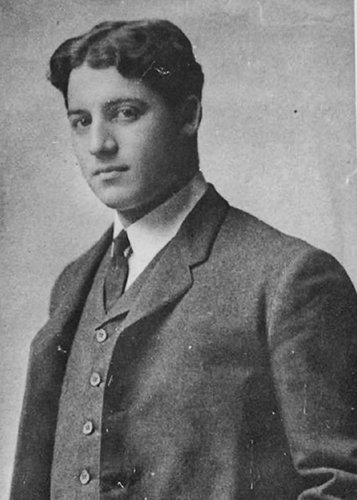SUGAR CANE
Sugarcane has been the staple crop in south Louisiana and Palo Alto throughout its existence. The Lemann family history book goes into great detail describing the number of hogsheads of sugar, barrels of molasses, and chords of firewood that were included in the purchase of the plantation back in 1867. Palo Alto’s humble beginnings saw 485 acres of sugarcane production, growing to more than 3,000 acres of sugar production. The plantation produces a whopping 19 million tons of raw sugar each year! Palo Alto also participates in public and private endeavors with LSU, the USDA, and the American Sugar Cane League. Through these endeavors, Palo Alto is home to one of three primary stations in the State of Louisiana. These primary stations introduce every new sugarcane variety into the commercial variety program.
SOYBEANS
In 2001, Palo Alto replanted soybeans after a 13-year hiatus. There are roughly 480 acres of the Plantation’s lands dedicated to producing the legume crop. In some years, it’s grown between a rotation of sugarcane to help with weed control and return nitrogen to the soils.
CATTLE
Woodland Stock Farm, our cattle division, takes a unique approach to cattle farming. Our primary operation puts herds of high-quality F1 Brahman cross heifers together. We breed the heifers to Angus bulls and then sell them to customers for herd replacements. A much smaller segment of our business is selling grain-fed calves to consumers. We have agreements with local producers to buy the very best calves they produce. We take them in at the end of September, feed them our unique blend of grain, and follow the process all the way to the delivery of customer-selected cuts of vacuum-packed meat.
WETLAND MITIGATION
Mitigation banking is a system of credits and debits developed by regulatory agencies to ensure the preservation, enhancement, restoration, or creation of a wetland, stream, or habitat conservation area which offsets or compensates for expected adverse impacts to similar nearby ecosystems. The goal is to replace the exact function and value of specific habitats that would be adversely affected by a proposed activity or project. Palo Alto opened a 500-acre mitigation bank in 2017. We take great pride in doing our part to maintain the environment.
LOG CABIN
Palo Alto Plantation, whose name means "tall trees," was once a wedding gift from the wealthy Spanish plantation owner Mathias Rodriguez to his daughter Rosalie. Jacob Lemann later purchased the property. Since his purchase in 1867, the plantation has been home to every crop native to Louisiana's rich soil. The plantation has grown considerably in its 155-year existence to encompass more than 6,000 acres of sugarcane, pasture land, wooded land, ponds, and mitigation fields.
Arthur Lemann Jr., Jacob's great-grandson, constructed our "Log Cabin" lodge with materials from one of pirate Jean Lafitte's hideouts that was located in Donaldsonville. The cabin sits in a pristine oak and cypress grove overlooking the picturesque Bayou Tomare. The rustic, yet comfortable, log cabin is surrounded by relics and antiques of the plantation's past steeped in the bayou culture.
LEMANN FAMILY LINEAGE
Including Years Served As President
Jacob Lemann (1867-1873)
Born in Essenheim, Germany, in 1809, he migrated to Louisiana in 1836. Jacob was an extremely successful merchant and obtained numerous plantations, acquiring Palo Alto Plantation in 1867. Overseers ran the daily operations, but he remained president until he died in 1873.
Bernard Lemann (1873-1899)
Bernard, the eldest son of Jacob, assumed the presidency and management of Palo Alto and other Lemann holdings in 1873. Along with his father, he was responsible for acquiring more plantations and increasing the amount of sugar produced. He continued in this position until he died in 1899.
Ferdinand Lemann (1899-1919)
Upon his father Bernard's death, Ferdinand assumed the responsibility and presidency of Palo Alto and other Lemann holdings. At this time, they included a large mercantile store and over 20,000 acres of agriculture production. Ferdinand saw the business grow and continue to prosper. He continued to serve until he died in 1919.
Arthur A. Lemann, Sr. (1919-1947)
Arthur was the second youngest son of Bernard and was 14 years younger than Ferdinand, who had taken him under his wing. Arthur married in 1914 and moved into the Palo Alto house, where he became overseer of the plantation. Upon Ferdinand’s death, he assumed the presidency of Palo Alto. He continued to serve until he died in 1947.
Arthur Lemann, Jr. (1951-1993)
Arthur Sr.'s sons, Arthur Jr. and Charles, returned from Europe at the end of WWII. Arthur Sr. was extremely ill, so Charles assumed the presidency of the mercantile store, and Arthur Jr. ran the plantation. In 1951, Charles succumbed to polio, and Arthur Jr. assumed the presidency of both operations and served in this capacity until he died in 1993.
Robert Lemann, Sr. (1993-2014)
Robert Lemann Sr. assumed the presidency of Palo Alto, Inc. upon his father's death. He was instrumental in bringing the mechanical sugarcane combine to Louisiana in 1995 and witnessed a revolution in the sugar industry. Robert Sr. served until he died in 2014.
Robert “Bubba” Lemann, Jr. (2014-Present)
After the death of Robert Sr., his oldest son, Robert Jr., assumed the presidency. During his years as president, he has helped the plantation diversify into many new ventures. With his continued leadership, we look to see the operations continue to grow and expand.
Robert “Bubba” Lemann, Jr.
Palo Alto, Inc.
P.O. Box 30
Donaldsonville, Louisiana 70346
Phone 225-717-3259
rlemann@yahoo.com


